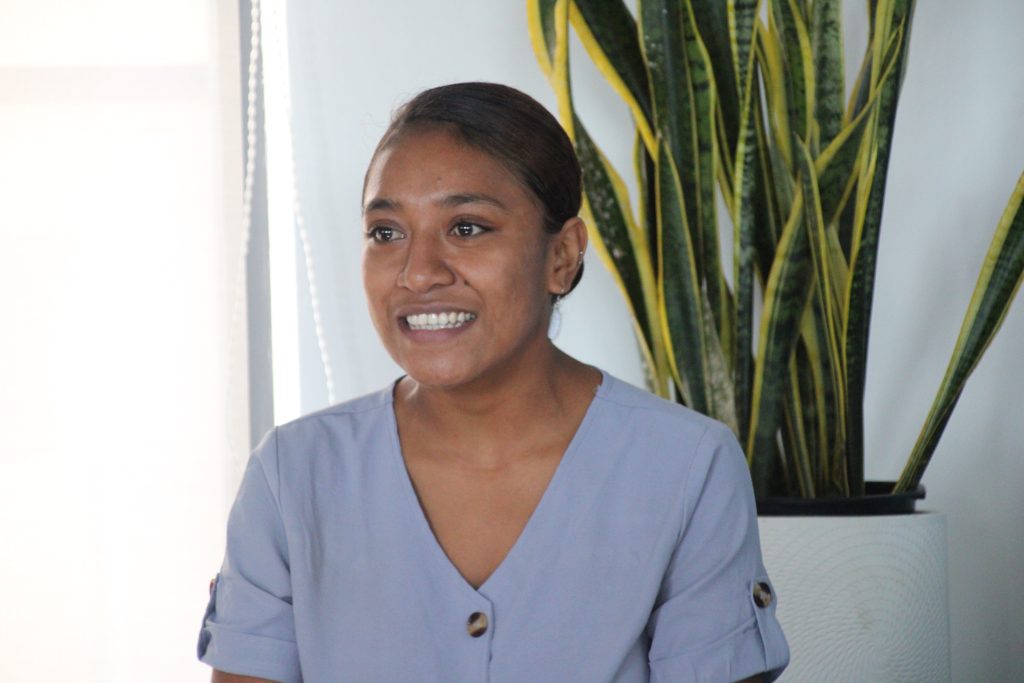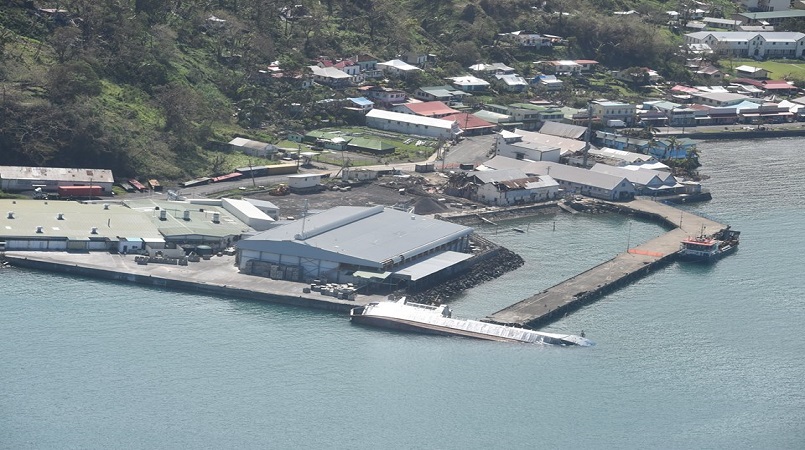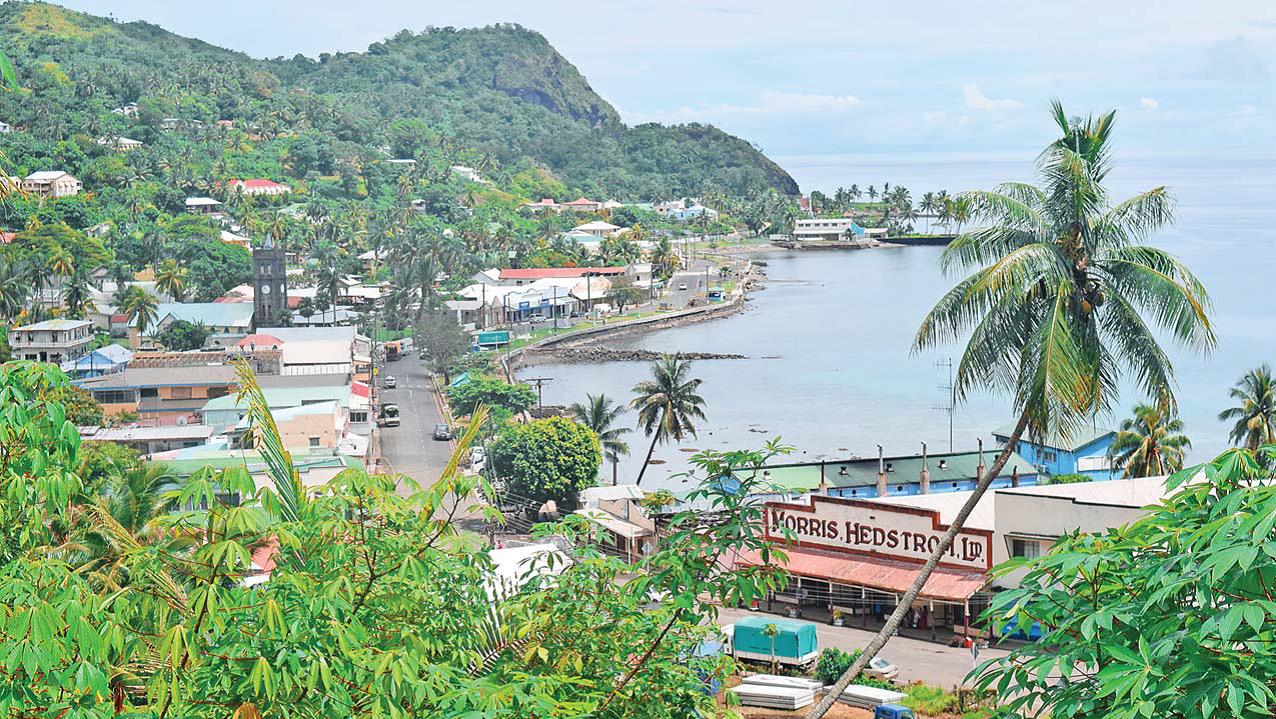In the heart of the Pacific, where the ocean’s waves touch the shores of countless islands, one voice stands out in the call for climate action.
Jessie Mule Siga, a dedicated advocate and volunteer with the WWF Pacific Volunteers Programme, speaks with a passion rooted in the very essence of the islands she calls home.
“The Pacific Ocean is so special to us Pacific Islanders. We don’t call our islands the islands in the sea but call it the Sea of Islands. That is such an incredible and mighty view of our oceanic state,” Siga said.
Her connection to the ocean is not just geographical but deeply personal, as she hails from a small island in the centre of Fiji, Levuka, Ovalau.
“If you have been to Levuka, Ovalau, you’d know that even our electric lines run in the sea. Back at home, the ocean, together with our farmlands, is our main food source,” she explains, highlighting the symbiotic relationship between the people and their environment”.
Siga’s journey into environmental science and advocacy began long before her formal education at the University of the South Pacific (USP).
“My love for the environment, the ocean, and its entire ecosystem did not begin when I chose to register for environmental science at USP, it started from my small island home, completely surrounded by the sea.”

Her studies opened her eyes to the numerous environmental challenges facing the Pacific Ocean, issues that, in her opinion, do not receive the attention they deserve.
“Some of these challenges include pollution, coral bleaching, overfishing, sedimentation, and many others,” Siga lists with concern.
The WWF Pacific Volunteers Programme has been a beacon of hope for Siga, and many like her.
“The beauty of engaging with the WWF Pacific Volunteer Programme is that it gives us the opportunity to help clean our communities. Volunteers are involved in climate-related projects.
“I would like to invite anyone interested in joining WWF Pacific. It would be a wonderful opportunity for you to give back to the environment.”
The ocean’s mysteries and vastness continue to interest Siga.
“The ocean is mighty and vast, as we all know. In fact, I just learned last week that only about 5 percent of the ocean has been explored. Scientists know more about space than our oceans,” she said, emphasising the need for continued exploration and conservation.
Her passion has led her to engage in various climate initiatives.
“With the love and passion that I have for the ocean that originated from my small island home, it has inspired me to engage in more programmes within the climate space. One of which is being an ambassador for G17, and I have been selected to advocate for Sustainable Development Goal (SDG) 13, which is climate action,” she proudly states.
Siga’s dedication extends beyond WWF Pacific, as she recently joined the Pacific Island Students Fighting Climate Change.
“I strongly believe that all of us here in Fiji, particularly the youth, should be climate activists, and here’s why. We are the very ones being affected, and we are on the front lines,” she emphasised.
“But those responsible for burning the most fossil fuel have not experienced the most direct consequences of climate change. It has been us.”
Her village’s struggles with sea level rise and storm surges underscore the urgency of her message.
“Sea level rise in my village is no joke. There have been conversations about relocation because of our vulnerability to storm surges. Imagine we were underwater during Cyclone Winston in 2016,” she recounts.

Despite the challenges, the deep connection her people have with their land makes relocation a heart-wrenching decision.
“This was my driving force. I continue to advocate for climate action because I refuse to lose my land to the climate crisis,” she states.
She challenges her peers to reflect on their contributions to their communities and nation.
“What are you doing for your community? What are you doing for our island nation? We are already feeling the effects, but we also have the power to make a difference. Young people like us bring a fresh perspective and innovative solutions.”
Siga points to the global youth movement Fridays for Future as an example of the power of young voices.
“If you had not already heard about an inspirational youth-led movement known as the Fridays for Future, what they did was they called out and pressured world leaders to take climate action. We can be that powerful too,” she encourages.
“Let’s get involved, volunteer with environmental organisations, participate in climate marches, and advocate for sustainable policies.”
Siga calls on the youth to rise and shape a better future for their blue Pacific Ocean.
“Our voices can shape a better future for our blue Pacific Ocean,” she said.













